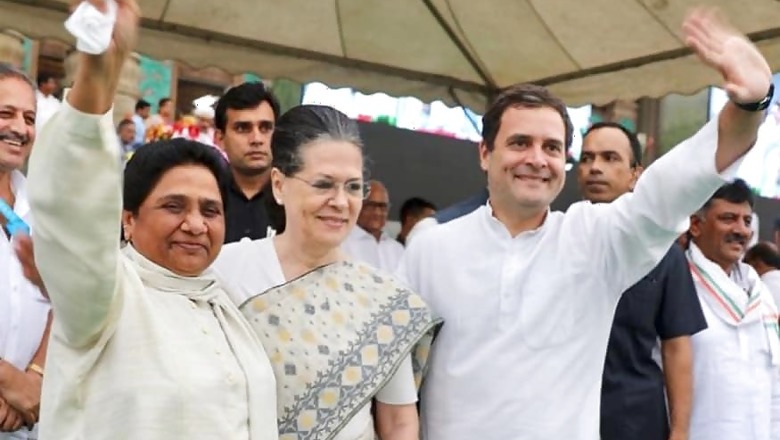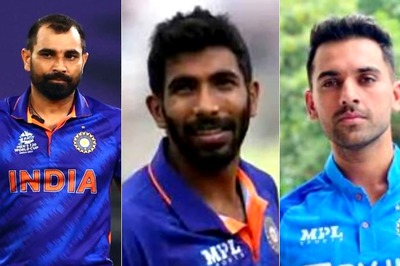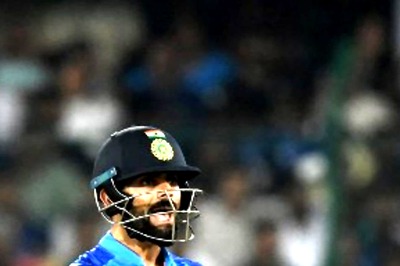
views
Bhopal: The Congress high command is yet to make up its mind over the conditional offer of Bahujan Samaj Party chief Mayawati for an alliance in poll-bound Madhya Pradesh, Chhattisgarh and Rajasthan but the party’s MP unit could prefer BSP over Samajwadi Party.
Sources claim that the BSP, which has maintained around 6.5% vote share in MP over the years, is adamant on 30 to 40 seats. The Samajwadi Party that got vote share of 0.03% in 2013 state polls also wants 10 to 15 of the 230 seats in MP.
The SP on the basis of district-wise survey wants 15 seats where the party either won in the past or garnered 15000-plus votes in previous elections.
Besides, Gondwana Gantantra Party that has significant presence in tribal belts in Mahakaushal and Vindhya region too wants five seats. In 2013, the GGP managed to get over 10,000 votes in at least 10 seats where tribal population remains a dominant force.
So, the Congress which is determined to be back in power is facing a seat sharing head ache. At most, the principal opposition party in the state wants to leave 30 seats for its smaller allies.
The BSP emerges as the obvious ally for the Congress in Madhya Pradesh despite having won four seats it 2013 as it mustered over 20,000 votes on 17 seats and importantly, secured 10,000 or more votes at 62 constituencies.
The BSP with its crucial 6.28% vote share played a decisive role between winning and or losing in several parts of the state, especially in 14 districts of Bundelkhand and Gwalior, adjoining Uttar Pradesh.
Though the BJP had swept the 2013 polls by garnering 45% vote share and 165 seats, the Congress hopes to jolt the ruling party by adding up its previous vote share of 37% with BSP’s 6.5% and GGP’s support. The grand old party hopes to galvanise Dalit and tribal votes to take on the OBC support base of the BJP.
Much to the delight of the Congress, its vote share had seen a positive swing of around 4% during last elections which the party would want to take ahead in 2018.
Unlike the BSP, the SP’s journey in MP hasn’t been much to talk about. It slumped to 0.03% vote share in 2013 and not winning a single seat from a handsome 3.7% vote share and seven wins in 2003—its best outing in MP.
Though SP chief Akhilesh Yadav did not meet MPCC head Kamal Nath during his two-day stay in Bhopal but he had several rounds of telephonic discussions with Nath. Both the leaders, however, refused to divulge details of the talks.
In order to gain strategic advantage, both the Congress and the BSP have been public in exhibiting their willingness to go solo in case the alliance is not finalised.
In recent interviews, Kamal Nath flaunted Congress party’s poll-preparedness to fight all the 230 seats alone, in case the allies fail to come on board.
Besides, at least two senior BSP leaders—state head Narmada Ahirwar and Pradip Ahirwar—have claimed that till now the state unit had no instructions on a tie-up.
The situation is more or less similar in neighbouring Chhattisgarh where the Congress is keen on bringing the BSP on board with its vote share of 1.5% of last polls. However, entangled in seat sharing trouble the state unit has persisted with plans to fight on all the 90 seats. The grand old part is well aware that the BSP support is crucial in Chhattisgarh if it wants to stop Raman Singh’s winning spree.

















Comments
0 comment